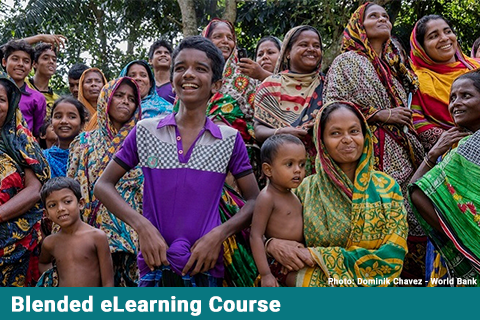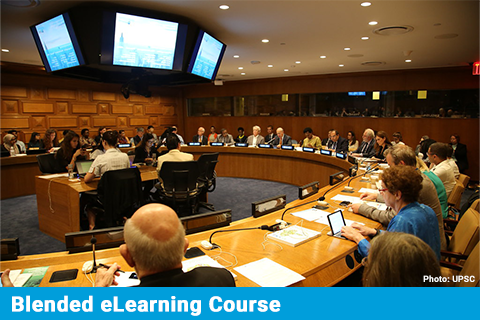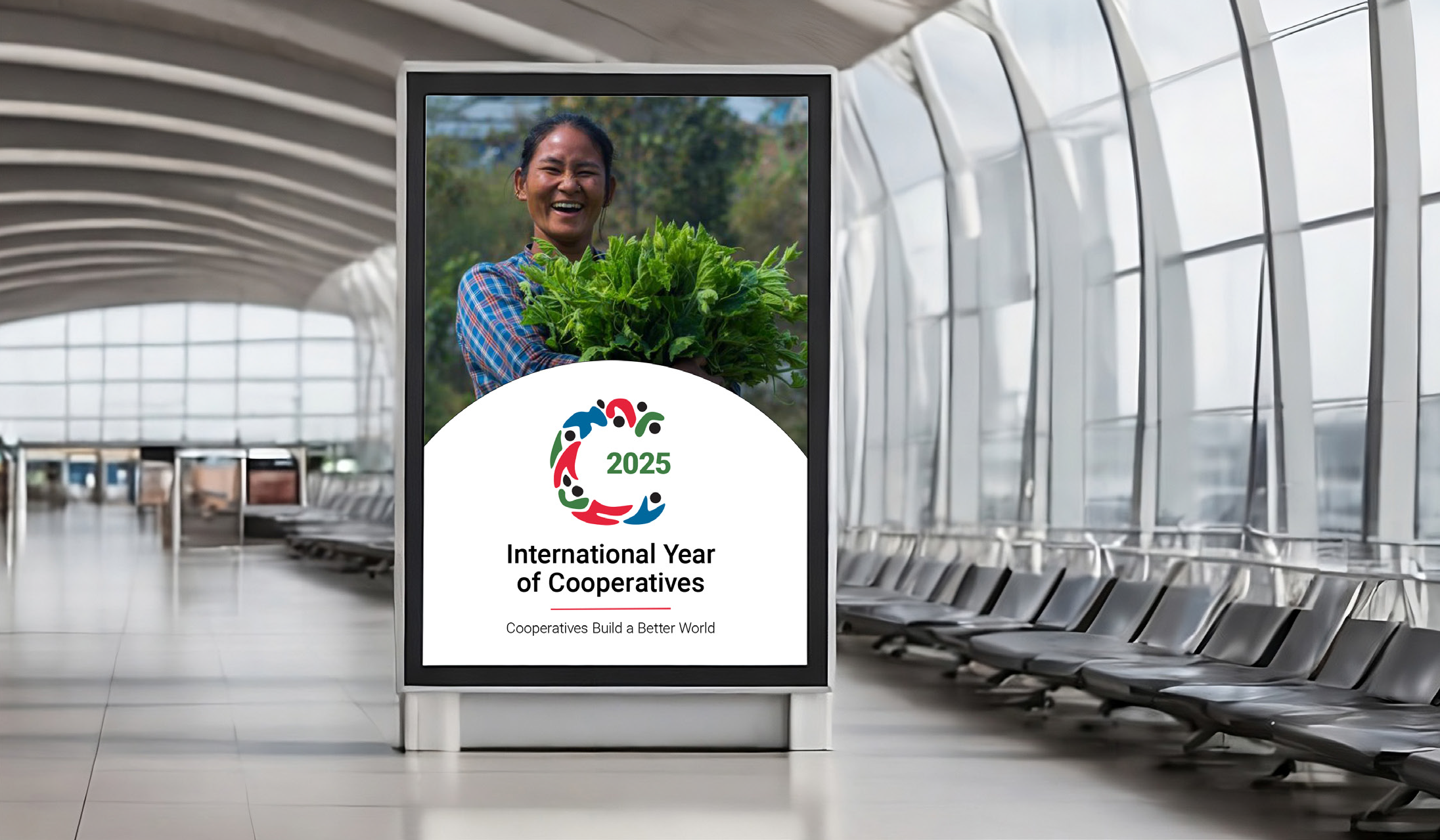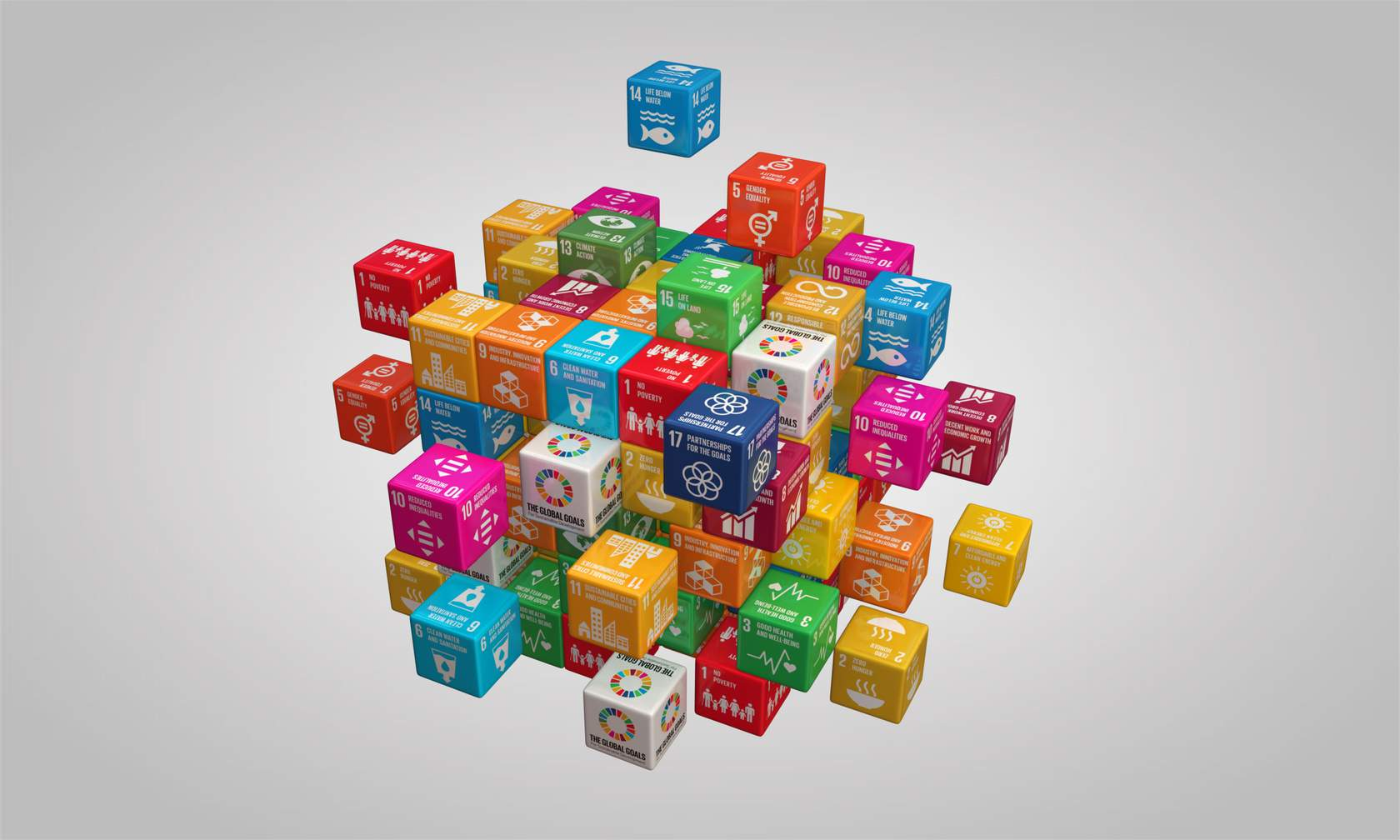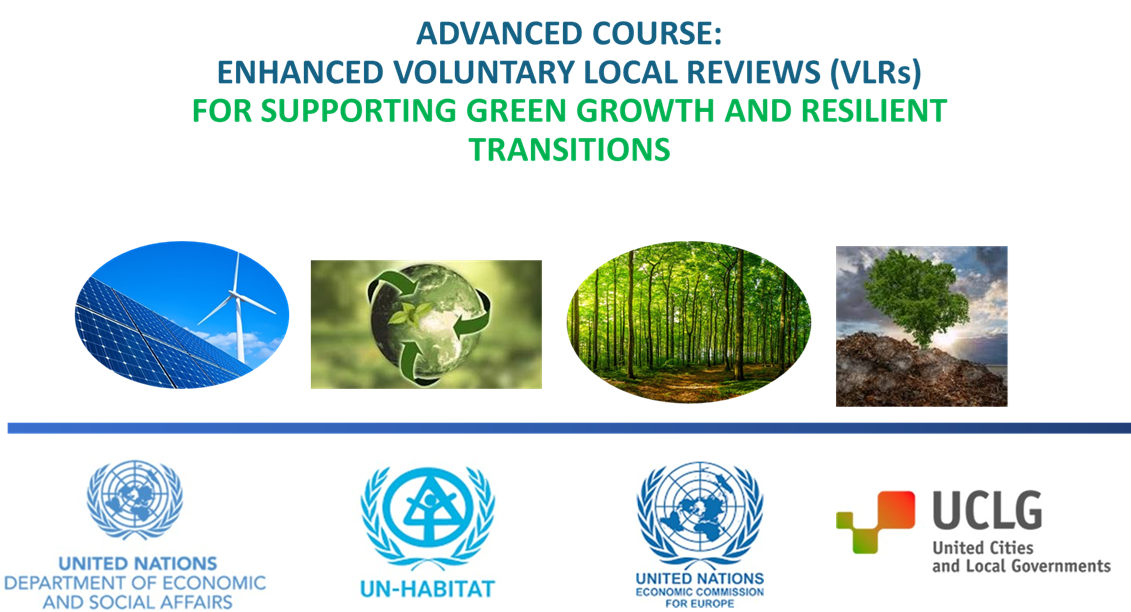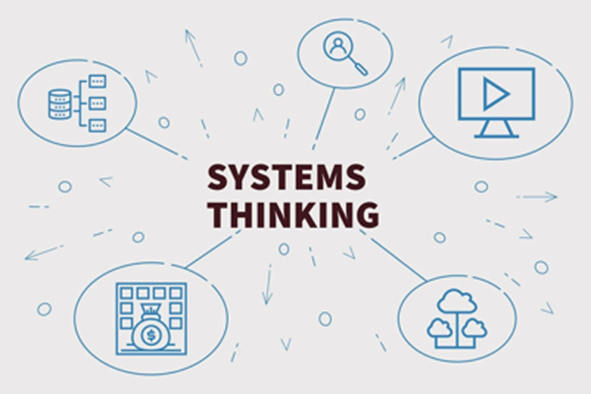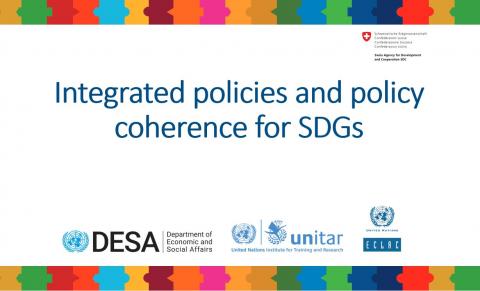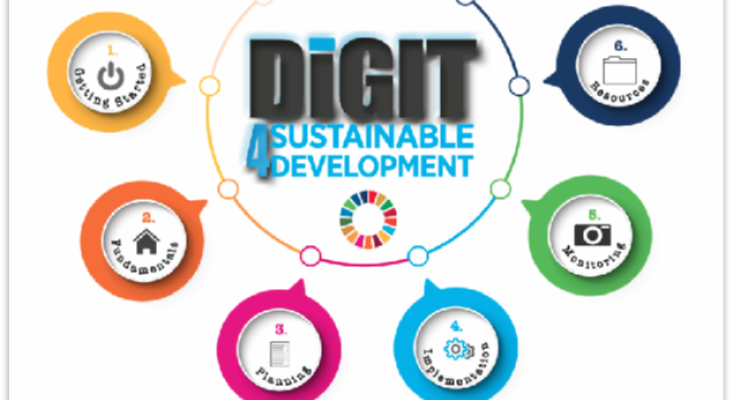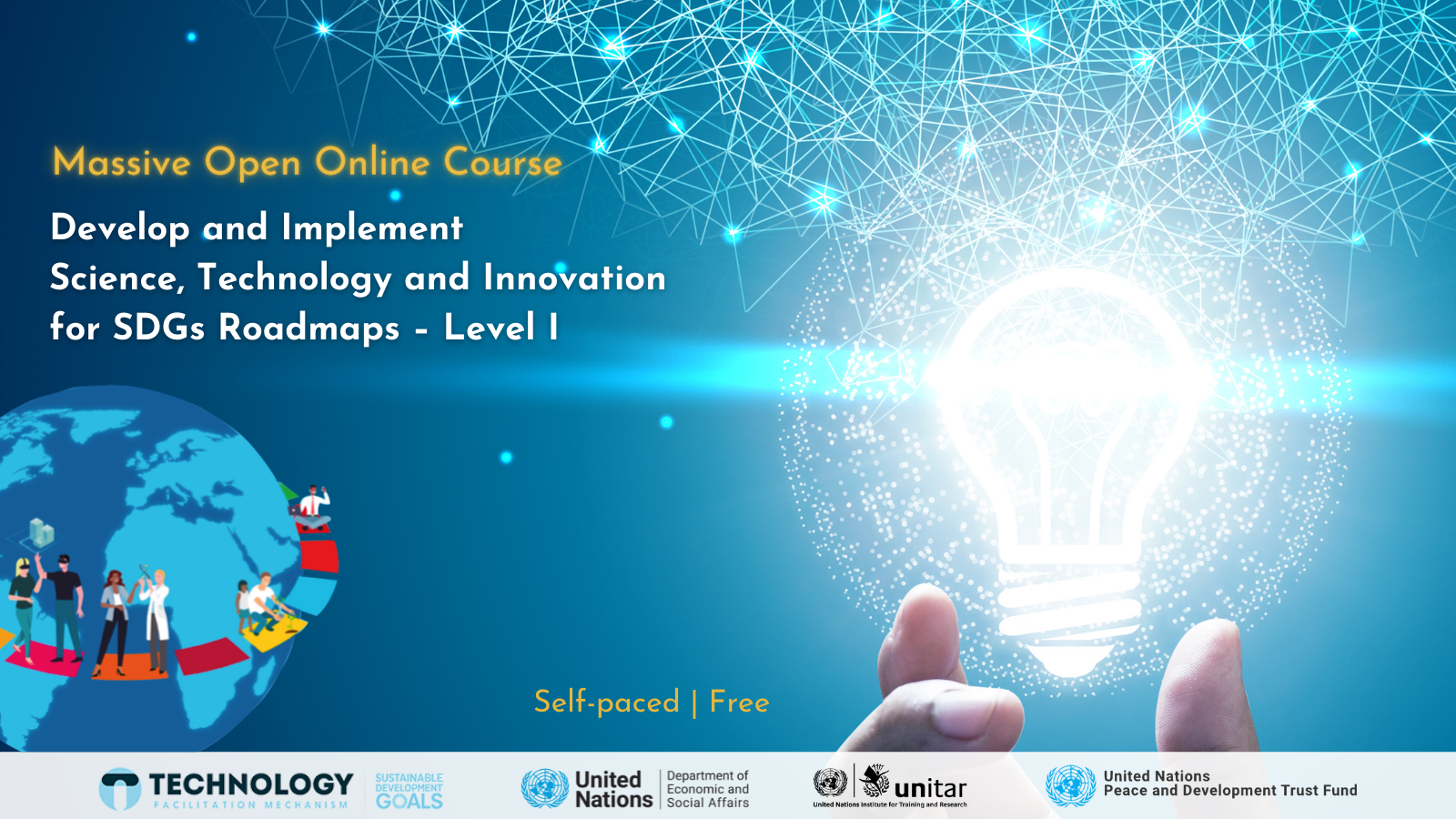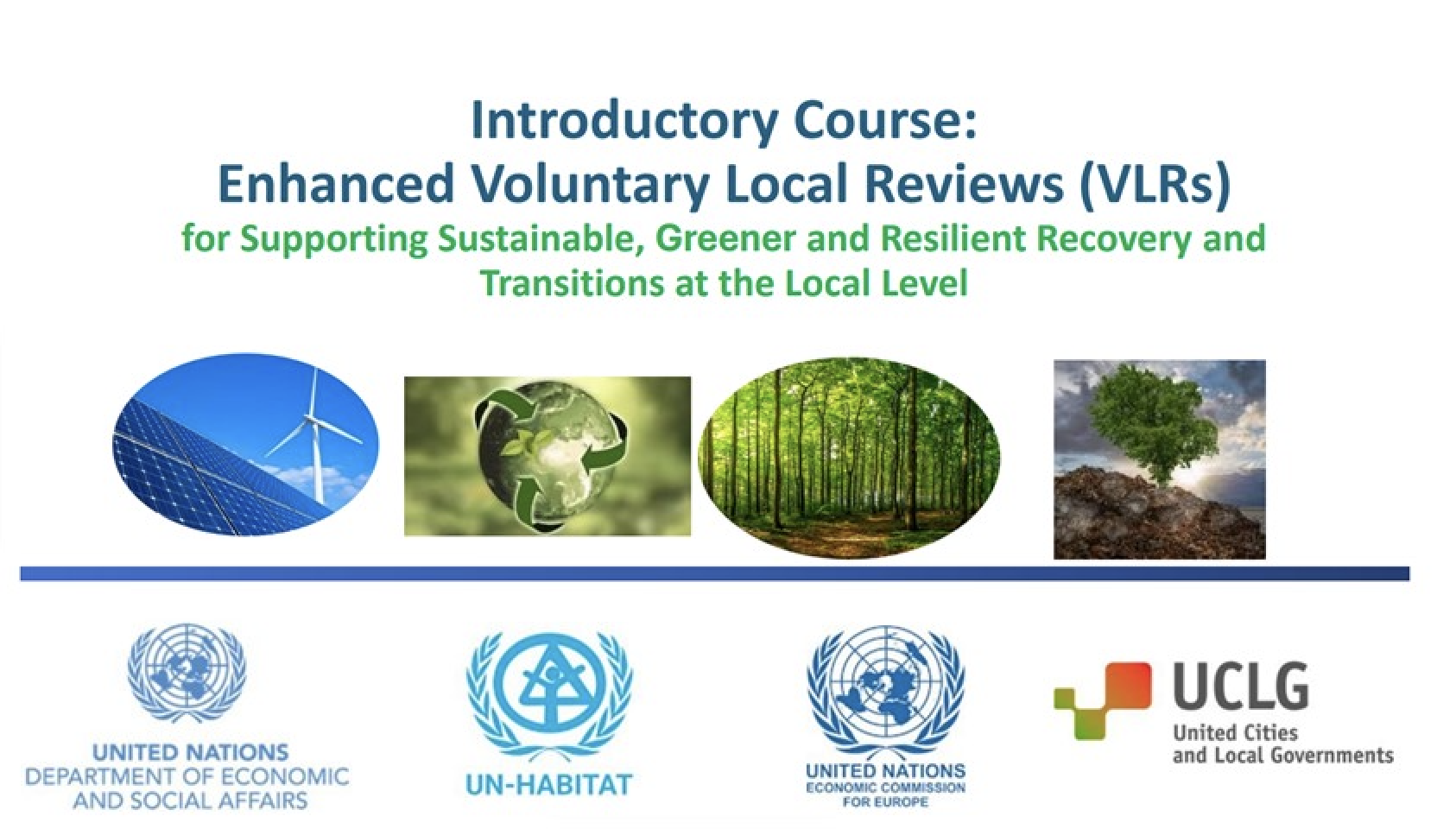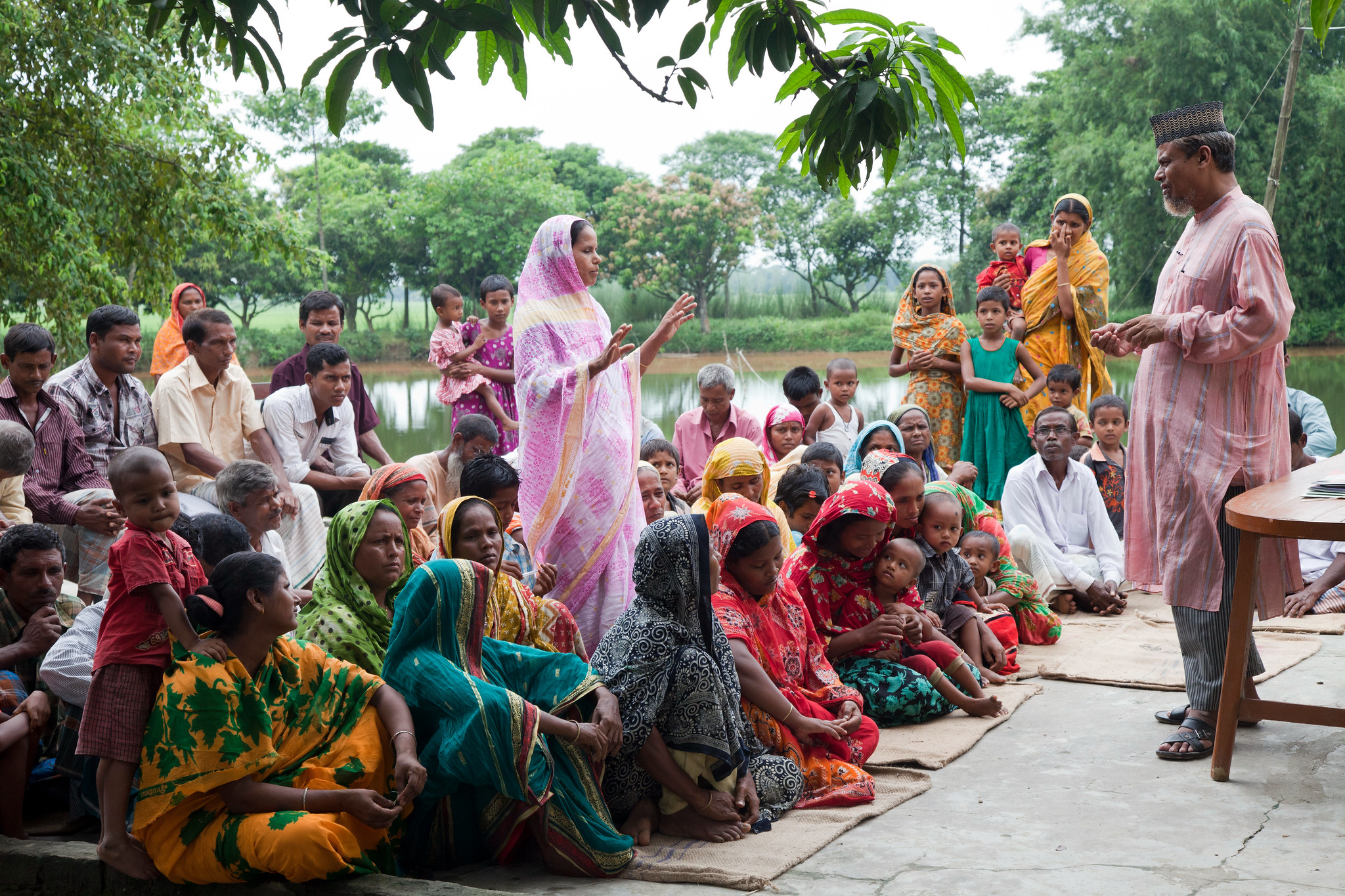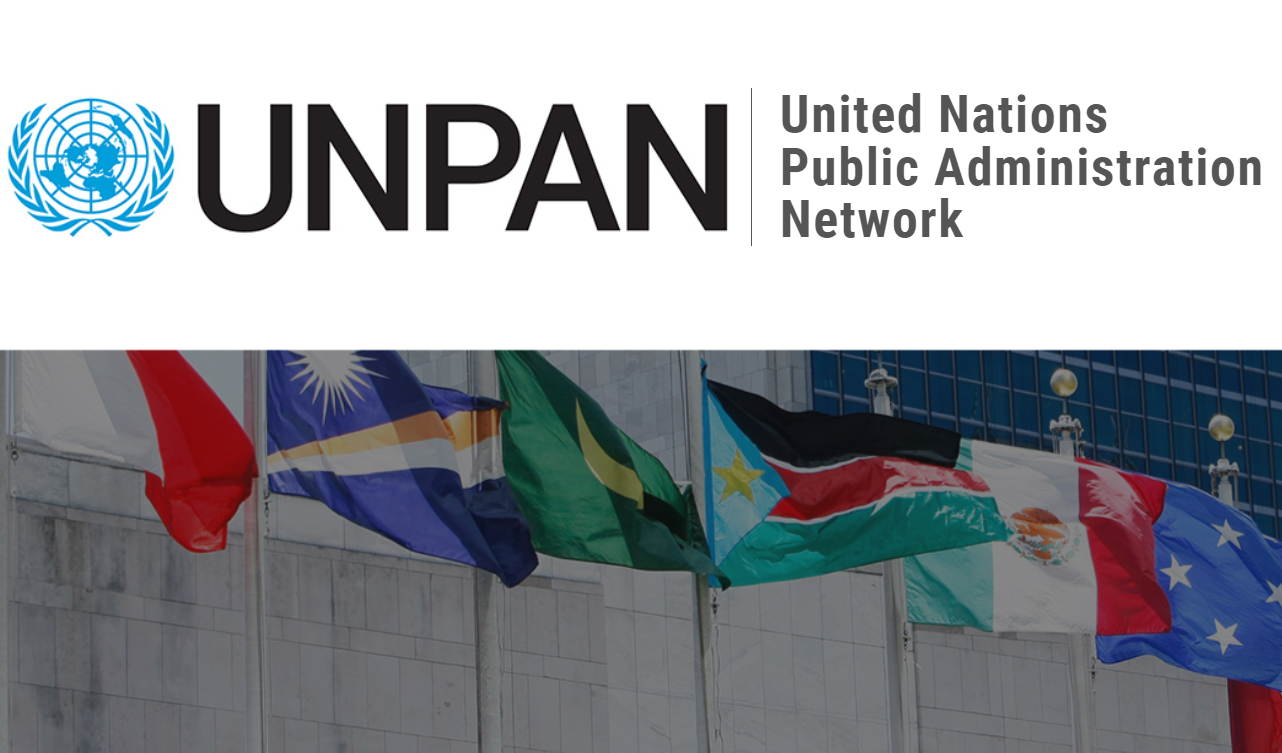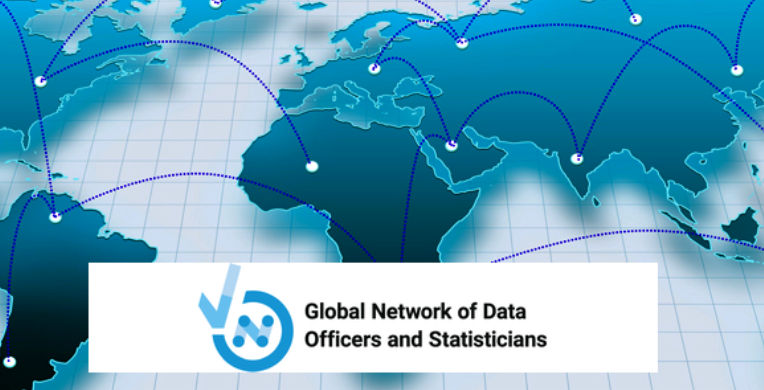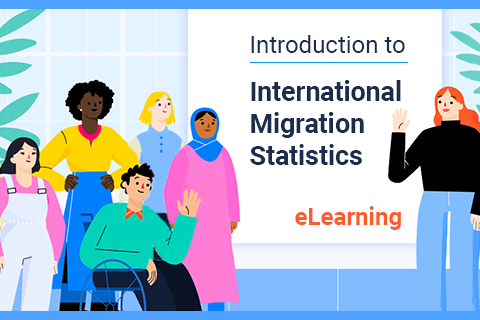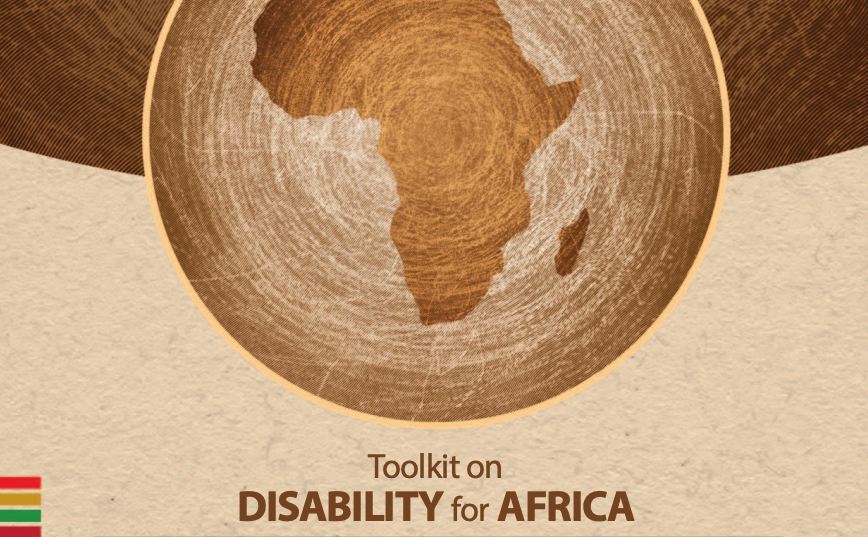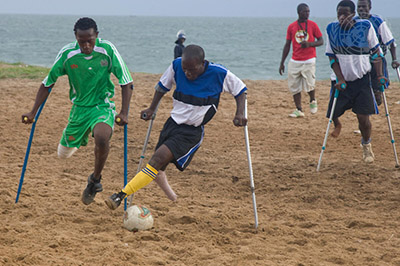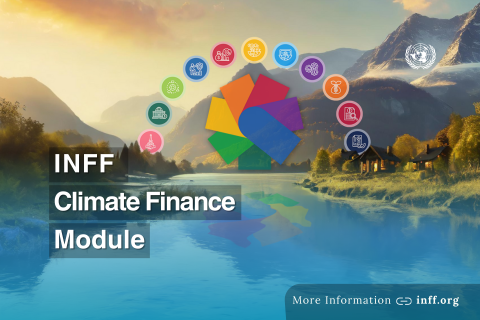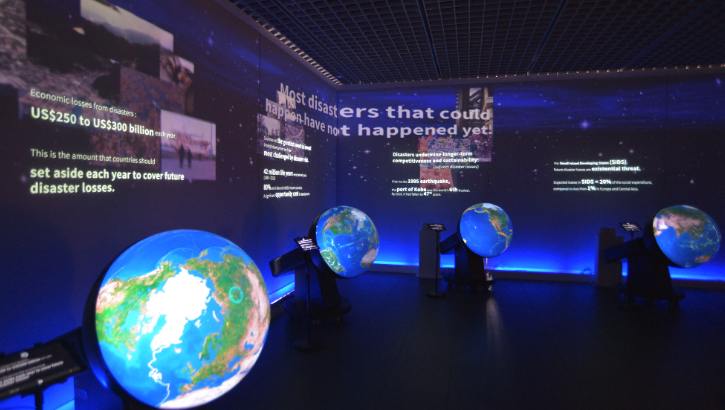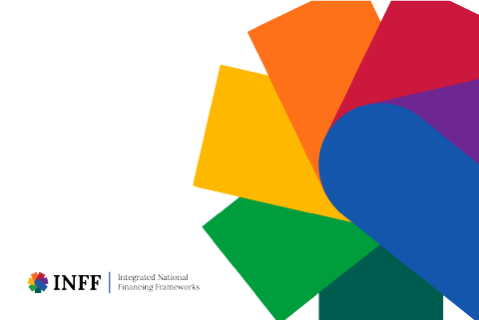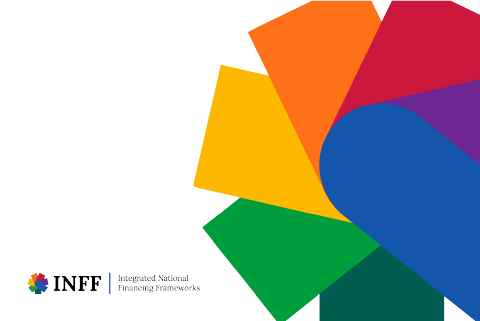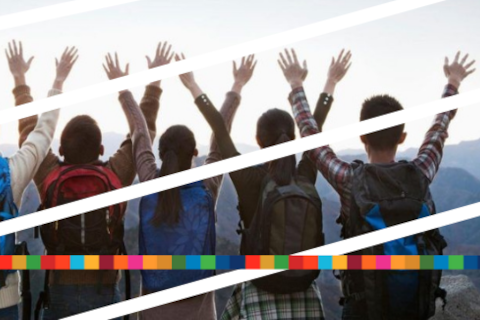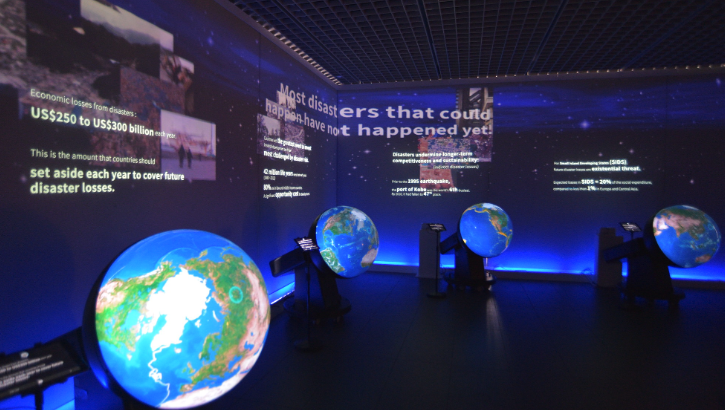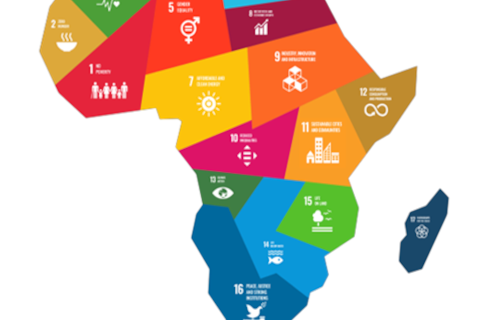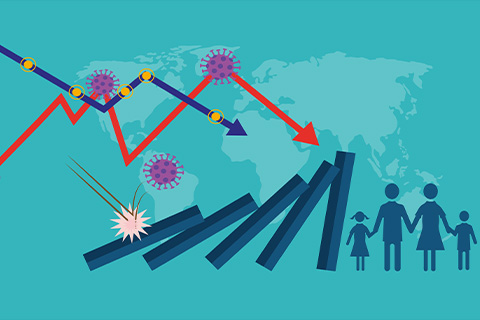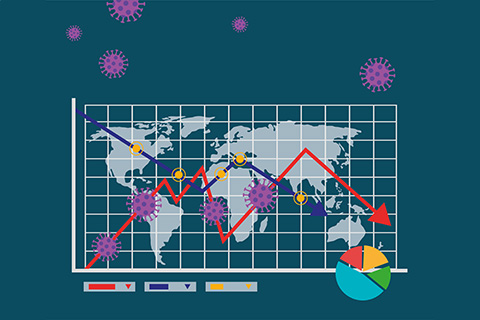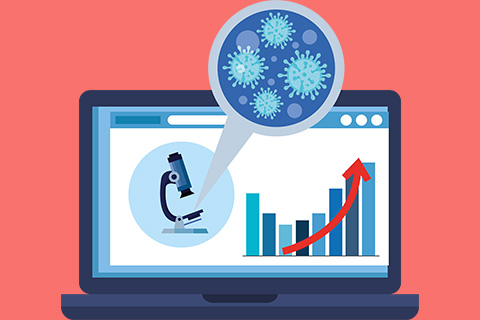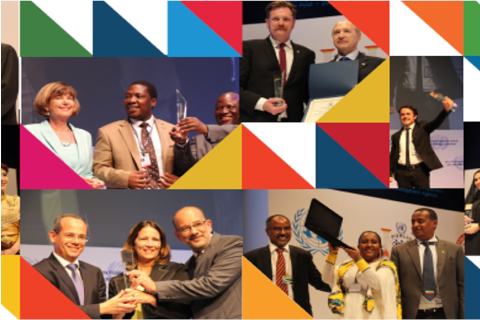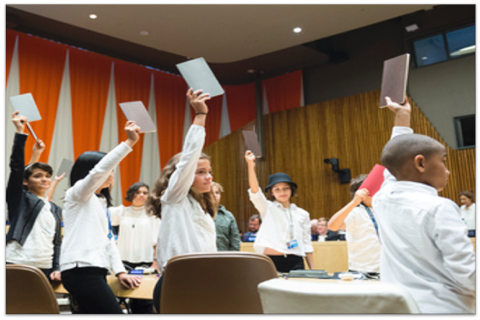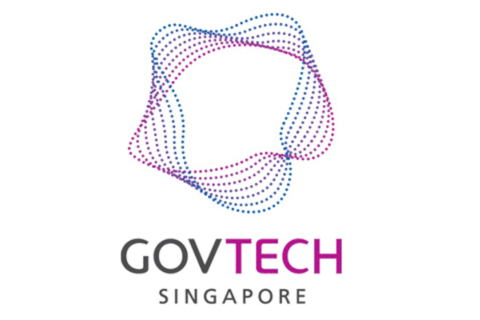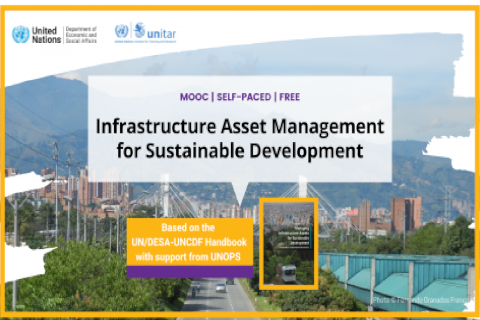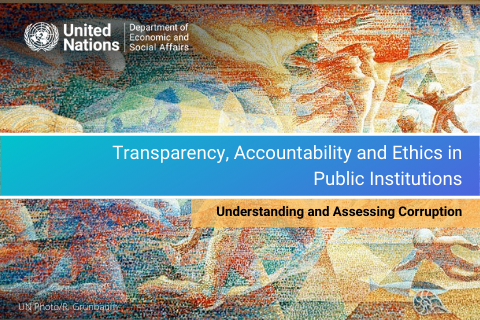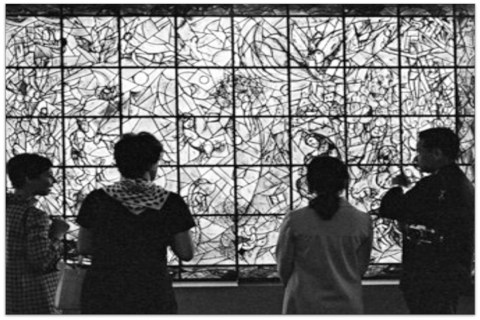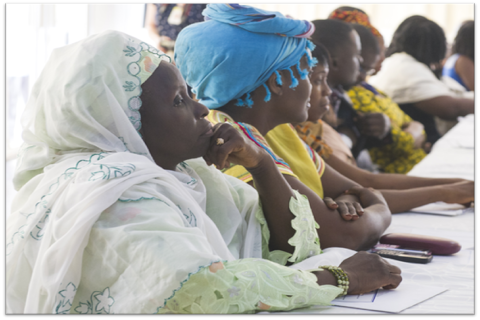Digital Learning Centre

Welcome to UN DESA's Digital Learning Centre (DLC), a curated repository of the Department's digital capacity-building portfolio open to the public!
The DLC offers digital learning resources for the latest knowledge for implementing the 2030 Agenda.
Digital Learning Resources
This Blended eLearning course is designed to offer self-paced learning experience on the Moodle platform, the course combines weekly thematic discussions with live sessions. This eLearning course focuses on fostering government innovation, particularly in advancing social inclusion for people in vulnerable situations. Participants will explore effective strategies, innovative approaches, and real-world experiences in multistakeholder engagement, innovative public services, inclusive mindsets, and digital government. The eLearning course aims to empower people in vulnerable situations as…
This Blended eLearning course focuses on building the capacity of public institutions to facilitate seamless collaboration between national and local authorities in planning, policy development, SDG localization, and financial management. By addressing institutional challenges and breaking down barriers, it aims to support more effective SDG implementation while highlighting the critical role of local governments in the process. It is designed to provide self-paced learning opportunities on the Moodle platform, combining weekly thematic discussions with live sessions.
…
Discover why gender equality is a core governance and institutional performance issue, how it shapes policy quality, service delivery, and institutional legitimacy, and how to identify gaps, remove barriers, and design evidence-based actions to deliver measurable change in public administration.
DESA's comprehensive platform for building capacities in digital social protection worldwide. Access learning, tools, resources, community support, and workshops for digital transformation.
Discover how cooperatives empower communities, promote decent work, and advance sustainable development in this engaging online training.
This course examines what conflicts of interests are and where they are likely to arise and how conflicts of interest can be managed. It also covers the key components of an interest and asset declaration system and the challenges they present. Through real-world examples participants will gain an understanding of how countries across the globe are managing conflicts of interest through information disclosure policies.
This course looks at the importance of public procurement, the risks of corruption public procurement process and consequences and tools for transparent public procurement. Participants explore how effective procurement systems not only safeguard public resources but also contribute to sustainable development.
This course examines the importance of anti-corruption efforts for achieving the Sustainable Development Goals as well as the role and history of anti-corruption conventions. Participants will learn about international and regional conventions, including the United Nations Convention Against Corruption (UNCAC), the only legally binding universal anti-corruption instrument.
Comment les objectifs de développement durable de votre pays sont-ils financés ? Y a-t-il des lacunes ? Gagnez en confiance dans la conception et la mise en œuvre d’un CFN afin de renforcer les processus et pratiques de financement dans votre contexte.
¿Cómo se están financiando los objetivos de desarrollo sostenible de su país?
¿Existen brechas o desajustes que puedan poner en riesgo su cumplimiento?
Descubra cómo los Marcos de Financiamiento Nacional Integrados (INFFs) pueden ayudar a fortalecer los procesos y las prácticas de financiamiento en su país.
Comment les objectifs de développement durable de votre pays sont-ils financés ? Existe-t-il des lacunes ou des incohérences susceptibles d’en compromettre la réalisation ?
Découvrez comment les Cadres nationaux de financement intégrés (INFFs) peuvent contribuer à renforcer les processus et les pratiques de financement dans votre pays.
¿Cómo se están financiando los objetivos de desarrollo sostenible de su país?
¿Existen brechas?
Adquiera la confianza necesaria para diseñar e implementar un Marco de Financiamiento Nacional Integrado (INFF) que contribuya a fortalecer los procesos y las prácticas de financiamiento en su propio contexto.
Explore the OG-Core model in this self-paced eLearning course. Learn its foundations, run simulations (using python), and craft policy insights to assess economic impacts.
Learn CLEWs for balanced resource planning and sustainable development. This holistic model helps policymakers manage demands, enhance resilience, and drive long-term sustainability.
A learning opportunity to officials of local governments and organizations, and experts assisting them, to advance green growth and resilient transition in local level strategies and plans.
This course examines the institutions that oversee the work of public agencies and government branches. It covers key oversight institutions, such as ombudsmen, anti-corruption agencies, and supreme audit institutions, exploring their roles, benefits, and challenges. Participants will also learn how countries worldwide leverage these institutions to strengthen accountability and combat corruption.
This course equips participants with the knowledge and tools to analyze the interconnectedness of the SDGs, apply systems thinking principles to national development planning, and deepen their understanding of the Systems Thinking approach and its practical applications.
This course explores the essentials of ethics and public integrity, focusing on the roles and responsibilities of public servants. It highlights the ethical dilemmas they may face and how to navigate these challenges with integrity. By examining how ethics, integrity, and accountability are interconnected, the course equips participants with the tools to promote public integrity in governance.
This toolkit has been developed by UNITAR together with the Division for Public Institutions and Digital Governance (DPIDG) of UN DESA and UN Economic Commission for Latin America and the Caribbean (ECLAC). It is a set of comprehensive training materials – PPT and exercises that aim to facilitate and enable national experts – government officials, academics, UN Country Teams to run training workshops for senior to junior government officials and other audiences on integrated policies, systemic thinking and policy coherence for the SDGs.
The Toolkit aims to help targeted countries develop digital government initiatives to support selected SDGs or targets. It offers best practices on digital government initiatives globally as well as case studies. It also incorporates the findings and recommendations proposed in past editions of the UN E-Government Survey.
This e-learning course has been developed based on the Operational Note by DESA and aims to strengthen capacities of various stakeholders at the country level to develop and implement national STI for SDGs Roadmaps by strengthening the capacities of key national stakeholders in this area and help mobilize the global community to assist in that endeavor.
Introductory Course: Enhanced Voluntary Local Reviews (VLRs) for Supporting Sustainable, Greener and Resilient Recovery and Transitions at the Local Level
This eLearning course is designed to offer self-paced learning opportunities aimed at fostering government innovation for the social inclusion of people in vulnerable situations. Through the introduction of various approaches strategies and national-level experiences, participants will gain insight into empowering people in vulnerable situations. Additionally, the course underscores the significance of involving these individuals in policy design, implementation, and monitoring processes, recognizing them as agents of change.
The United Nations Public Administration Network (UNPAN) Online Training Centre delivers courses and features training material on various topics in public administration. Its main objective is to increase learning opportunities for government officials and citizens from all over the world. UNPAN online training courses training material and are available to anyone with Internet access and are provided free of charge. The courses and training material are available in English, and other UN official languages.
The Global Network of Data Officers and Statisticians is a facilitated professional online social community. The goal of the network is to support governments to build resilient and sustainable national data and information systems for the full implementation of the SDGs and for other decision making through collaboration, knowledge-sharing, networking, and technical support.
The course aims to provide participants with a strong foundation in the essential concepts of international migration statistics, covering key definitions, sources, and uses of migration data, and introducing practical tools.
Empower government and non-government stakeholders with knowledge and skills for sustainable development related to innovative policies aimed at persons with disabilities.
Empower government and non-government stakeholders with knowledge and skills for sustainable development related to innovative policies related to sport for development and peace.
The Local E-Government Toolkit empowers local governments, addressing digitalization challenges, and enhancing components of the Local Online Service Index (LOSI) for SDG alignment. Ideal for civil servants, officials, and institutions seeking practical insights to improve online services for sustainable communities.
Empower local government stakeholders with knowledge and skills in e-government for sustainable development and effective service delivery.
INFFs help countries finance national sustainable development objectives and climate goals. Over 80 countries are designing and implementing INFFs, building on existing plans and adapting to each country's unique context and priorities. This course explores financing opportunities for Nationally Determined Contributions and climate objectives through INFFs, using global guidance materials and country examples to empower learners to put theory into practice.
Following the Foundational Course which explored the general aspects of effective national to local public governance for SDG implementation, this Advanced Course seeks to delve into the specific aspects of SDG localization – vertical integration, SDG financing, and monitoring and evaluation.
This Foundational Course seeks to explore the general aspects of effective national to local public governance for SDG implementation. Special emphasis is given to strengthening institutional effectiveness, the importance of multistakeholder engagement, and the role of local governments in achieving the SDGs.
This eLearning course aims to bolster government capacities for innovative use of ICTs and cutting-edge technologies in disaster risk reduction and resilience. It emphasizes adapting and scaling public service innovations to suit specific national contexts. The online module includes materials, case studies, and knowledge checks to explore practical ways of accessing, adopting, and maintaining emerging technologies for stronger risk-informed policymaking and resilience in the public sector.
How are your country’s sustainable development objectives being financed? Are there gaps? Gain confidence in designing and implementing an INFF to help strengthen financing processes and practices in your context.
How are your country’s sustainable development objectives being financed? Are there gaps and misalignments that could undermine their achievement?
Learn about how INFFs can help strengthen financing processes and practices in your country.
The course covers mapping stakeholders, engagement models and practices, and strategies for ongoing SDGs engagement. One module covers approaches, tools and best practices to "leave no one behind."
Ce cours en ligne ouvert et massif (MOOC) fournit des informations et des outils clés sur la manière de renforcer l'engagement des parties prenantes de différents secteurs et niveaux dans la mise en œuvre et le suivi du Programme 2030 et des objectifs de développement durable (ODD).
This toolkit is made for schools of public administration, national experts, government officials, academics, UN Country Teams, and others. It aims to provide a set of methodologies and tools that can contribute to a change in the environment, culture and mindset of public servants in implementing the Sustainable Development Goals (SDGs) in the context of the 2030 Agenda.
This training toolkit seeks to build national capacities to spearhead innovations and utilize Information and Communications Technologies (ICTs) and key frontier technologies in government in order to drive DRR and resilience. Special emphasis is given to public service innovations that serve the needs of countries in special situations, including methods for adapting and scaling them to align them with the national context.
This training toolkit is designed around the often-expressed challenges of strengthening national to local government coordination and institutional effectiveness for the SDGs. Therefore, this toolkit aims to break these barriers for more effective achievement of the SDGs and highlights the role of local government.
This online course is particularly tailored for public servants in Africa or anyone interested in learning about transformational leadership in Africa.
In this course you learn about solving policy problems within a control group and about regulatory sandboxing, i.e. to do the live testing of technologies, services and business in the real market, but at a smaller scale, on a time-limited basis, and with appropriate safeguards.
This programme is intended for government officials, policy makers, as well as other public sector staff interested in learning more about the economic and social impacts of COVID-19.
During the outbreak and following socio-economic effects, UN DESA kept an eye on macroeconomic consequences, highlighting global and regional contradictions.
In light of the economic impact of the COVID-19 pandemic, UN DESA detailed the real and potentially devastating effects on countries in special situations.
COVID-19 and its economic impact struck the globe along established fault lines of exclusion, inequality, and disadvantage, which revealed deep-set gaps in access to essential services and secure livelihoods among social groups in many countries.
Science and technology have been essential in both the scientific understanding of Coronavirus, as well as in enabling continued productivity and educational initiatives for those with access, given that many activities were carried out remotely.
As countries transition from COVID-19, taking cogent and comprehensive actions in line with the 2030 Agenda can place the world on a trajectory that leads to sustainable development.
This training toolkit contains a set of comprehensive training materials aimed at strengthening the capacities of government officials to promote innovation for SDG implementation. It is designed for schools of public administration, national experts, government officials, academics, UN Country Teams, and others.
This training toolkit aims to build capacities to promote government innovation for social inclusion of vulnerable groups by introducing approaches, strategies, and experiences at the national level. It also highlights the importance of empowering vulnerable groups and engaging them in policy design, implementation, and monitoring processes, as agents of change.
The development of digital government can lead the journey to a Smart Nation that leverages technology to improve the lives of citizens and business owners. But what should be the starting point of a digital government?
This e-learning course aims to equip policymakers and government officials to find the answers in their specific national and local contexts. It makes a compelling case that ultimately, asset management is a way to align strategic planning with infrastructure and service delivery in the real world.
Do you want to learn what corruption is, its impacts, how it’s measured and why it’s the ultimate betrayal of public trust, as UN Secretary-General António Guterres has said? Then take this course on Understanding & Assessing Corruption.
This toolkit has been developed to help national experts, government officials, academics, UN Country Teams, and others. The training toolkit approaches integrity and effective anti-corruption in public institutions.
The toolkit is for national experts, government officials, academics, UN Country Teams, and others. The primary objective of the training toolkit is to support UN Member States in developing their governance capacities and institutional arrangements for policy coherence.
ℹ️ In case you encounter any issues accessing a course or if you need further assistance, please contact us.
